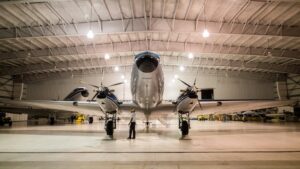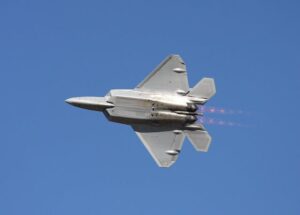 BETA Technologies is one of the world’s most important development companies for electric aviation systems. It became famous in 2021 when it presented its ALIA-250 model, a vertical takeoff and landing (eVTOL) helicopter designed to serve as an air taxi in large cities. However, its main bet is not that the ALIA CTOL has already flown almost 42,000 test kilometres and has shown great reliability.
BETA Technologies is one of the world’s most important development companies for electric aviation systems. It became famous in 2021 when it presented its ALIA-250 model, a vertical takeoff and landing (eVTOL) helicopter designed to serve as an air taxi in large cities. However, its main bet is not that the ALIA CTOL has already flown almost 42,000 test kilometres and has shown great reliability.
The ALIA CTOL is an electric conventional takeoff and landing (VTOL) aircraft already licensed by the Federal Aviation Administration (FAA) of the United States and could obtain approval for commercial use in 2025. Its last trip covered the route between the BETA Technologies headquarters, which is located in Vermont, and the Duke Field military base, Florida. In total, approximately 3,200 kilometres.
The plane took 12 hours to travel that distance and only needed a stopover in Syracuse. Along the way, he had to cross the airspace of Boston and New York City. He had to obtain administrative authorization to do the same in Washington, DC, a restricted flight zone (FRZ). It is the first electric aircraft in history to be awarded.
Charging Facilities And Other Uses
Regarding the aircraft loading facilities, BETA Technologies already has 14 operational. However, it is building or developing another 60, allowing it to carry out increasingly longer routes without any problem. The company has also agreed to carry out human-crewed flights for the United States Air Force and Army. It has even delivered a mobile flight simulator to train its pilots.
 It is worth remembering that Beta Technologies’ ALIA CTOL stands out in several aspects. The first is its ability to travel long distances without generating greenhouse emissions, which is one of the great problems of current aviation. In addition, it hardly generates noise, which helps reduce noise pollution in large cities and developments near major commercial airports.
It is worth remembering that Beta Technologies’ ALIA CTOL stands out in several aspects. The first is its ability to travel long distances without generating greenhouse emissions, which is one of the great problems of current aviation. In addition, it hardly generates noise, which helps reduce noise pollution in large cities and developments near major commercial airports.
“Sustainability will involve many supporting initiatives, each requiring different levels of expertise. Airlines, airports, ANSPs, and OEMs must be ready for this reality and start thinking about how they will reskill and retain workers now,” Johnston added. “Workers must be consulted throughout the process to ensure a smooth and just transition to a sustainable future.”
Johnston emphasizes that spending money on training will continue to be squandered without addressing the root causes that have created chronic staff shortages that have plagued the industry for decades.
“Aviation companies need to get their sums right so we don’t repeat history. Currently, investment in training is often wasted as low wages, erratic shift patterns, and a lack of job security result in aviation staff seeking greener pastures in other industries. Then the training cycle starts all over again.”
“The industry’s longevity depends on attracting and retaining a diverse workforce. Part of this transition must include providing job security and creating conditions that ensure women have the same opportunities. True sustainability has social and governance elements as important as reducing carbon.”
